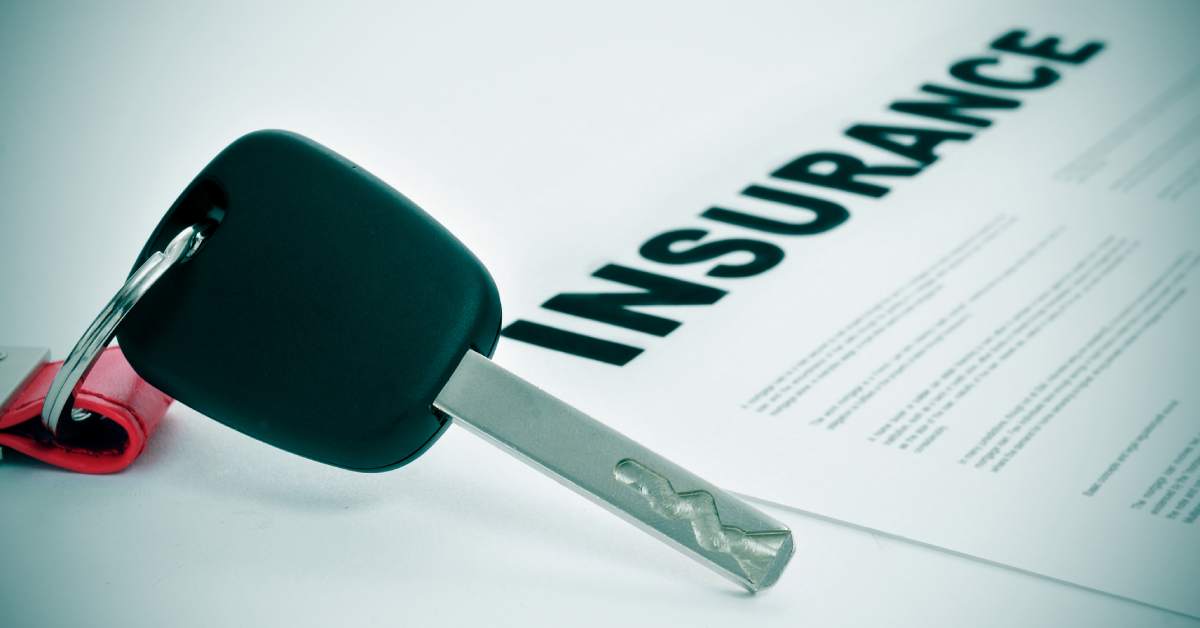FR-44 vs. SR-22: Key Differences in Virginia Insurance Laws

Virginia drivers who face certain violations often encounter confusing insurance requirements that can feel overwhelming. The state mandates specific financial responsibility filings that differ from standard auto insurance policies. Understanding these requirements is crucial when your driving privileges hang in the balance.
Two primary insurance forms dominate Virginia’s high-risk driver landscape: SR-22 and FR-44 certificates. While both serve similar purposes, they carry distinct requirements and consequences that directly impact your wallet and driving future. The differences between these filings determine what you pay for coverage and how long you remain under state supervision.
The key differences in Virginia’s insurance laws between SR-22 and FR-44 affect thousands of drivers annually, yet many remain unaware of the specific requirements until they face a violation. This knowledge gap can lead to costly mistakes, extended penalties, and prolonged license suspensions that disrupt daily life.
What Is an SR-22 in Virginia?
An SR-22 is a certificate your insurance company files with the Virginia Department of Motor Vehicles (DMV) to prove you carry the state’s minimum liability coverage. It’s not a separate insurance policy but a legal form the state requires after certain driving offenses. Common reasons for an SR-22 include DUI convictions, multiple traffic violations, driving without insurance, or operating a vehicle with a suspended license.
An SR-22 ensures continuous coverage. If your policy lapses, your insurer must notify the DMV, which typically leads to automatic license suspension. Most drivers need to maintain an SR-22 for about three years, though serious violations can extend that timeline.
Since SR-22 filings mark you as a high-risk driver, insurers often raise your premiums, sometimes by 20 to 50 percent. Some providers may even decline your coverage, making it important to work with companies that specialize in high-risk auto insurance.
What Is an FR-44 in Virginia?
Virginia created the FR-44 filing to enforce stricter insurance requirements for drivers convicted of alcohol- or drug-related offenses. Like the SR-22, an FR-44 proves you carry insurance, but it demands higher liability limits (twice the state’s standard minimums). This filing reflects the elevated risk associated with impaired driving and aims to enhance public safety.
Drivers typically need an FR-44 after a DUI conviction, especially with a high blood alcohol content or multiple offenses. The state may also require it if your license is suspended due to alcohol-related incidents, drug offenses, or refusal to take a sobriety test during a DUI stop.
To meet FR-44 requirements, you must carry at least $60,000 in bodily injury coverage per person, $120,000 per accident, and $40,000 for property damage. These limits far exceed those required for SR-22 filings and make FR-44 insurance substantially more expensive. Virginia is one of only two states that use FR-44 filings, making it a unique requirement for local drivers.
Key Differences Between SR-22 and FR-44 in Virginia
While both SR-22 and FR-44 filings prove financial responsibility to the Virginia DMV, they differ in purpose, coverage requirements, and how they affect your insurance options and premiums.
Purpose and Offense Type
SR-22 filings apply to general high-risk violations, such as multiple traffic offenses or driving without insurance. FR-44 filings specifically target offenses like DUIs and license suspensions tied to substance use.
Liability Coverage Requirements
SR-22 certificates require drivers to carry Virginia’s standard minimum liability coverage: $25,000 for bodily injury per person, $50,000 per accident, and $20,000 for property damage. FR-44 filings demand double those amounts, resulting in far higher coverage obligations.
Cost Impact on Insurance
Since SR-22 filings require only minimum coverage, they tend to raise premiums moderately. FR-44 filings, on the other hand, often increase premiums by 50 to 100 percent due to the higher liability limits. This difference makes FR-44 coverage considerably more expensive to maintain.
Filing Process and Duration
Both SR-22 and FR-44 filings follow the same administrative process. Insurance providers file the forms electronically with the Virginia DMV. Most drivers must maintain the filing for three years, although repeat offenses or more serious violations can extend the requirement.
Availability and Insurer Options
More insurers offer SR-22 coverage because it involves standard policy limits. FR-44 filings limit your options, as fewer companies provide high-limit policies at competitive rates. Drivers needing FR-44 coverage often benefit from working with agencies that specialize in high-risk insurance.
How These Filings Affect Drivers
SR-22 and FR-44 filings do more than fulfill legal requirements; they directly impact your insurance costs, coverage options, and ability to maintain your license.
Insurance Costs
Both filings substantially increase insurance premiums, but FR-44 requirements typically create far larger financial burdens. Your geographic location within Virginia also influences costs since urban areas typically command higher rates for high-risk coverage. Your age, driving record, and credit score continue affecting premiums, even with required filings.
Policy Restrictions
Many mainstream insurance companies avoid SR-22 and FR-44 filings entirely, limiting your coverage options. These restrictions force drivers to pursue specialized high-risk insurers who understand state requirements but may charge premium rates. Some companies offer coverage but impose strict policy conditions or require larger down payments.
Working with insurance agencies that specialize in high-risk coverage often yields better results than shopping around individually. These professionals understand which companies accept SR-22 and FR-44 business and can compare options efficiently.
Renewal and Cancellation Rules
Virginia requires continuous coverage throughout your filing period without any lapses. If your policy cancels for nonpayment or other reasons, your insurer must notify the DMV within 10 days. This notification typically triggers immediate license suspension until you restore coverage and file proper documentation.
The state takes coverage lapses seriously, often resetting your required filing period when violations occur. Maintaining continuous coverage is essential for regaining full driving privileges within the expected timeframe.
How To Get SR-22 or FR-44 Insurance in Virginia
First, you must determine whether you need SR-22 or FR-44 coverage based on your specific violation. Review your court documents or contact the Virginia DMV to clarify requirements before shopping for coverage. This step prevents costly mistakes that could extend your filing period.
Contact insurance companies authorized to file certificates in Virginia and obtain quotes meeting your required liability limits. Many insurers handle the filing process automatically once you purchase qualifying coverage, but confirm this service before finalizing your policy.
Drivers searching for FR-44 insurance quotes in Virginia should work with specialists who understand state requirements and can compare multiple carriers efficiently. These professionals often offer better rates because they maintain relationships with high-risk insurers.
Monitor your coverage continuously throughout the filing period, and address payment issues immediately. Late payments or policy cancellations create complications that extend your requirements and may result in additional penalties.
Move Forward With Confidence
Understanding insurance filing requirements helps Virginia drivers navigate complex regulations while avoiding unnecessary costs and delays. When it comes to FR44 vs. SR22, the key differences in Virginia’s insurance laws impact how you approach your coverage.
Whether you’re dealing with a DUI or another serious traffic offense, staying insured without interruption and meeting state requirements is essential to regaining your driving privileges. Work with professionals who understand Virginia’s unique insurance landscape to stay compliant and protected.



Recent Comments